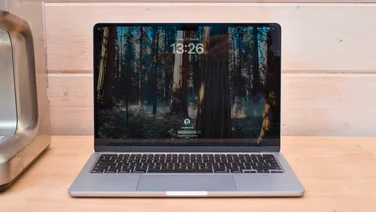To help us provide you with free impartial advice, we may earn a commission if you buy through links on our site. Learn more

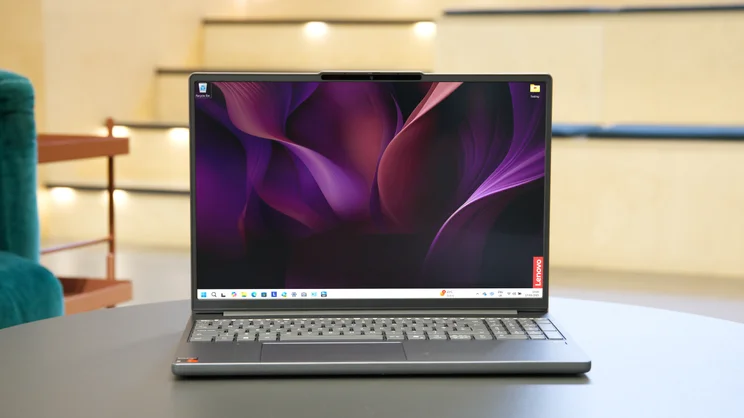

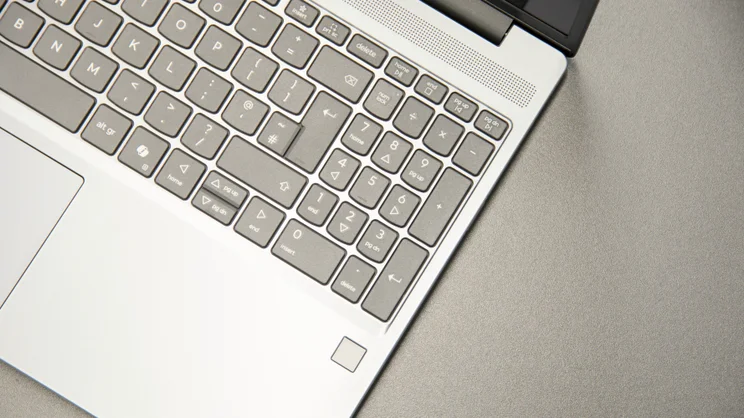
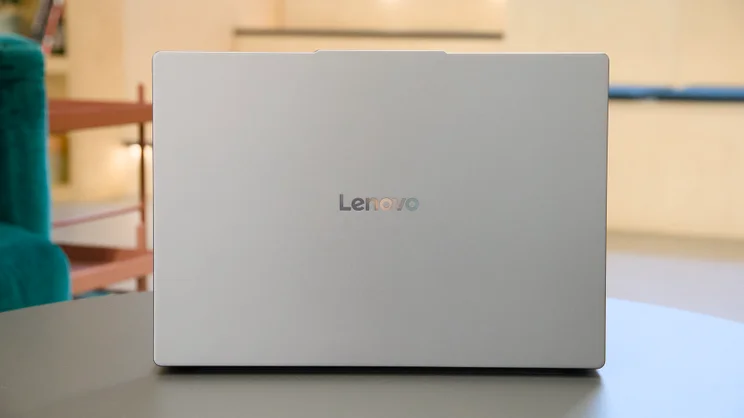
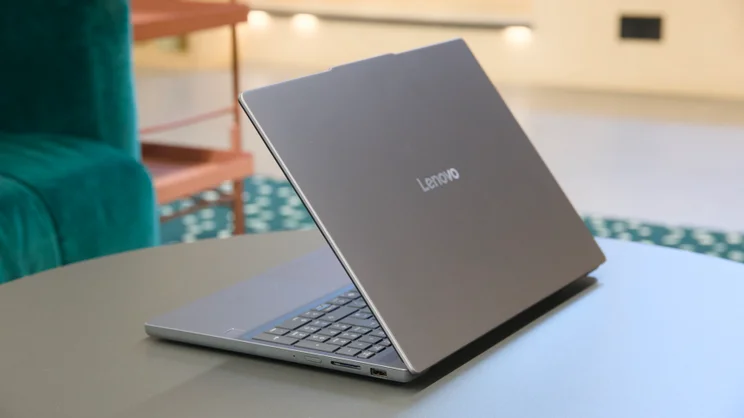
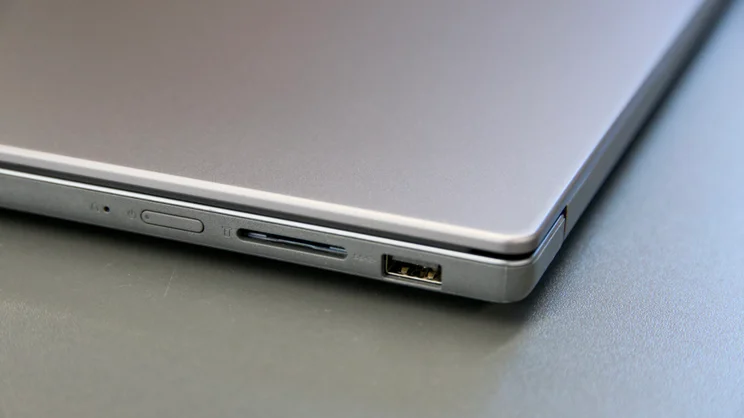
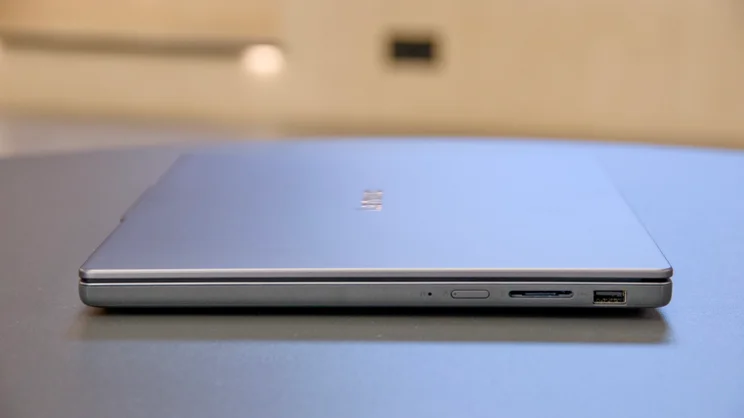
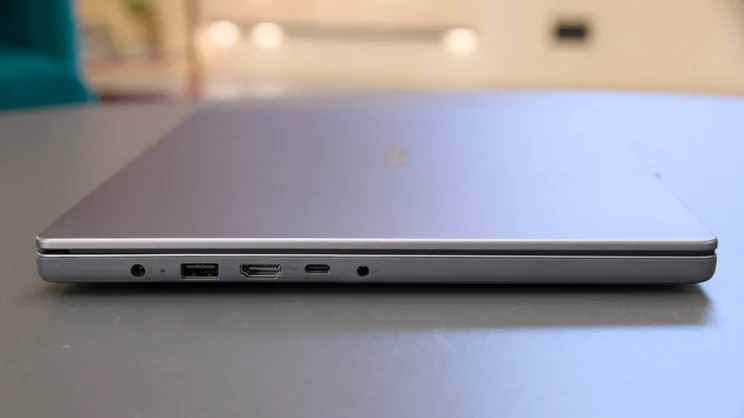
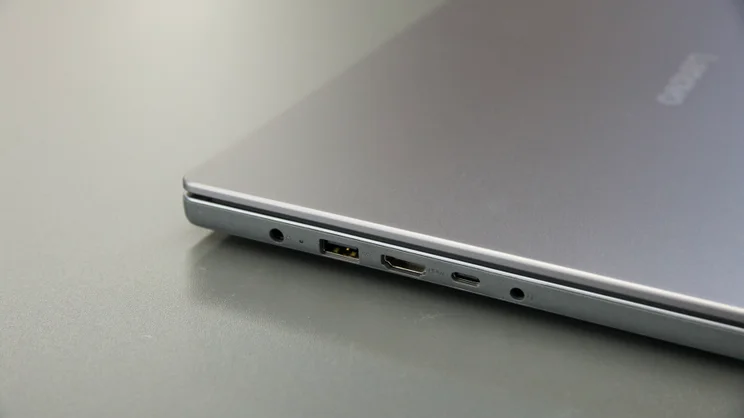
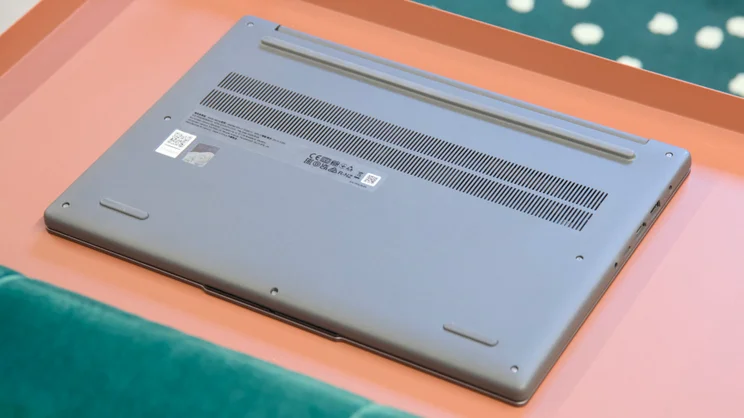
- Stonking value
- Decent battery life
- Plenty of optional extras
- The IPS display is best avoided
- Slow data ports
- The keyboard is a bit bouncy
If you’re after a slim and light laptop with a big display and good battery life, you’ll probably gravitate towards the Apple MacBook Air. And rightly so; Apple’s 15.3in Air is a darned fine laptop.
It’s not exactly cheap, though. The entry-level M4 model with a 256GB SSD is currently £1,049, while the 512GB model is another £200.
But what if you want to pay around half that? Granted, you’ll have to make do with some compromises, but is there a £600 15in laptop that captures the essence of the MacBook Air? The new Lenovo IdeaPad Slim 3x Gen 10 might just be that laptop.
Lenovo IdeaPad Slim 3x Gen 10: What you need to know
Lenovo’s latest budget compact can be picked up for between £540 and £720, depending on which options you pick. For £720, you get a 2.5K OLED screen, 24GB of RAM and a 1TB SSD, which is a tasty package for the money, while at the bottom end, you get a Full HD IPS display, 16GB of RAM and 256GB of storage. For just over £500 that’s not bad.
No matter which model you pick, you get a Snapdragon X X1-26-100 8-core processor. It may be the lowliest of Qualcomm’s Snapdragon X family, but it delivers performance way beyond that of the sort of Raptor Lake i3 CPUs that often come in machines this cheap, be they running Windows or ChromeOS.
Perhaps more importantly, the Snapdragon X1-26-100 comes with a 45 TOPS NPU, which means it can run all of Windows local AI tasks like Recall, Live Captions and webcam Studio Effects. The Slim 3x isn’t branded as a Copilot+ laptop, but to all intents and purposes, it is one.











Price and competition
The IdeaPad Slim 3x is unusual for a budget laptop in that you can choose between a lot of different options at the point of purchase.
Bumping the RAM from 16GB to 24GB costs £40, moving from a 256GB SSD to 512GB or 1TB costs £10 or £40. A 5MP rather than 720p webcam costs £10 and so does opting for Wi-Fi 7 rather than Wi-Fi 6. Adding a keyboard backlight and opting for a 60Wh instead of a 50Wh battery each add £10 to the price.











The most expensive upgrades relate to the display. The entry-level model has a 15.3in 1,920 x 1,200 IPS 60Hz non-touch display. An extra £30 adds touch compatibility, while an extra £80 gets you a slightly smaller 15.1in 2,560 x 1,600 OLED non-touch display with a HDR600 rating. It’s worth noting that opting for the OLED option automatically gets you the better webcam and the larger battery.
Given the wide price range the IdeaPad Slim 3x covers, there are quite a few alternatives you might consider:
- Apple’s M4 MacBook Air is the most obvious and a brilliant laptop. The display is top quality, as is the keyboard and sound system. Battery life, however, is no longer class-leading, and the price Apple asks for larger capacity SSDs is too much in our opinion. If you need a big SSD, Apple’s laptops begin to look a lot less attractive
- Samsung’s 15.6in Galaxy Book 4 is the quintessential budget laptop. Starting at £399, the price is certainly right, but for that you only get 8GB of RAM, 256GB of slow storage and a six-core Intel Core i3-1315U CPU. At nine and a half hours, battery life is acceptable, but only by 2023 standards
- Acer’s latest Aspire 14 AI is good value at £749 and packs a fine Full HD OLED display, plus a bang-up-to-date Intel Core Ultra Series 2 CPU, which means full Copilot+ certification. Performance is strong, and the battery life is impressive at over 18 hours
- The 14in Asus Zenbook A14 has a sumptuous Full HD OLED screen, though, without touch support and uses the same chipset as the IdeaPad Slim 3x. Battery life is great, and you can currently buy the A14 for a ridiculously low £699
Design and features
For what is a cheap, and thus largely built from plastic, the IdeaPad Slim 3x is a surprisingly solid, handsome bit of kit. There’s no flex or creaking in evidence, and the MIL-STD 810H rating suggests it doesn’t have a glass jaw.
The sole Luna Grey colourway is smart and businesslike, and the paint finish is pretty good at not showing fingerprints. At 1.6kg on the scales and 16.9mm thick, the new Lenovo is a bit heavier, and rather thicker than, the MacBook Air, but not disastrously so.











The IdeaPad Slim 3x has a reasonable selection of and sockets but they’re not particularly up to date with the two USB-A ports and one USB-C operating at the rather slow data rate of 5Gbits/sec. Still, the USB-C port is at least capable of outputting to a monitor, and you also get an HDMI 1.4 output, a 3.5mm audio jack and an SD card reader.
My review sample came with Qualcomm FastConnect 7800 wireless card installed, which supports Wi-Fi 7 and Bluetooth 5.4, both as rare as hen’s teeth on sub-£1,000 laptops.
Keyboard, touchpad and webcam
The keypad looks like a typical Lenovo keyboard, complete with clear graphics and a small curve at the bottom of each key cap, but it doesn’t feel entirely like a Lenovo laptop keyboard, thanks to a degree of flex in the middle of the deck and a rather shallow 1.3mm of key travel.
Having said that, typing on the IdeaPad Slim 3x isn’t in any way a chore. You get a numberpad, which makes data entry easier than tapping away on the top row and the layout is sensible, with a the fingerprint reader sensibly placed away from the main keyboard.











At 75 x 120mm, the plastic touchpad could be bigger, and the click-action is just a little on the noisy side, but otherwise it works perfectly well. And the basic 720p webcam isn’t all that bad, either, producing images that are sharp and bright, if rather colourless, although I can’t imagine why you’d not want to upgrade the sharper 5MP for a mere £10.
All of Microsoft’s Studio Effects filters and toys are present and correct, and there’s a manual privacy shutter cover, although no support for Windows Hello face login.
Display and audio quality
The IPS display is pretty much exactly what you’d expect at this price point: it’s drab. Given the OLED option is only another £80, you’d be certifiable not to choose it.
I’ve not had a chance to test that screen, but Lenovo advertises it as having 500cd/m2 peak and 100% DCI-P3 coverage, so it’s safe to assume it’s a country mile better than this IPS alternative.











When I tested the screen with a colorimeter, the results appear to confirm that, with low colour gamut coverage of 56% of sRGB and laughably bad colour accuracy. However, peak brightness of 315cd/m2 isn’t terrible, the anti-glare coating does a good job at keeping reflections at bay and the touch interface works well.
To the eye, it doesn’t look as awful as those numbers suggest, either, thanks in part to a contrast ratio of 1,053:1, which lends images on screen a certain solidity. It’s good enough for everyday general use and no worse than the display on most other laptop at this price.
The speakers don’t want for volume, either, registering 76dBA when measured against a pink noise source at 1m. The sound they make is rather tinny, but there is some bass in evidence, and there’s no distortion even at maximum volume. Listening to music on them is by no means an unpleasant experience.











Performance and battery life
The Snapdragon X1-26-100 is the same CPU used in the Asus Zenbook A14 and is both the newest and lowest specification of Qualcomm’s Snapdragon X chips.
It has eight cores running at up to 3GHz (0.4GHz slower than the slowest X Plus 10-core chip), lacks dual-core boost and has a GPU rated at 1.7 teraflops, which is half as powerful as the base 10-core X Plus chip. The Hexagon NPU is the same, though, and rated at 45 TOPS (trillions of operations per second).
Despite using the puniest Snapdragon chip available, the IdeaPad Slim 3x feels quite sprightly in day-to-day use. Programmes launch quickly, the laptop wakes from sleep almost instantaneously and only starts to feel a bit tardy when you tax both CPU and GPU: under heavy stress, CPU utilisation dropped to 68%.
Graphics performance is a bit of a handicap, though, to be fair, that’s more when you compare it to Apple’s ARM or Intel’s new Arc integrated GPUs. However, performance is broadly on a par with Intel’s base UHD GPU, which is what you tend to get in laptops in this price range.
Fan noise is not something you need to worry about. There is one here, and you can hearit when it’s running at full speed, which isn’t all that often. The noise is never what I’d describe as intrusive, though.
Storage speed from the 256GB SKHynix SSD in my review machine was fine. In testing, I recorded average sequential read and write speeds of 4,065MB/sec and 1,908MB/sec, respectively.
Here’s a good place to point out that Lenovo charges £10 more for a 512GB SSD and £40 more for 1TB, which is much better value than Apple’s equivalent £200 and £400 premiums.
Last but by no means least, to battery life. My review machine came with the larger 60Wh battery, and that delivered a runtime of 15hr 2mins. That’s not an outstanding performance by 2025 standards, but it’s close to the current MacBook Air by as near as makes no difference and for a laptop as cheap as the IdeaPad Slim 3x, quite an achievement.
IdeaPad Slim 3x review: Verdict
At the start of this review, I posed the question: Is the IdeaPad Slim 3x a half-price MacBook Air? Of course, such a thing is impossible, so it’s unfair to expect the answer to be yes; but the new Lenovo comes a darned sight closer than you’d expect.
Across the board, the Lenovo delivers higher levels of performance, usability and desirability than you’ve any right to expect of a budget laptop, which at the entry level is exactly what the IdeaPad Slim 3x is.
But it’s when almost fully loaded that the IdeaPad Slim 3x is at its giant-killer best: a 2.5K OLED screen, Wi-Fi 7, 16GB of RAM and a 512GB SSD for £670 is spectacular value.
Lenovo IdeaPad Slim 3x Specifications
| Processor | Qualcomm Snapdragon X X1-26-100 |
| RAM | 16GB |
| Additional memory slots | No |
| Max. memory | 24GB |
| Graphics adapter | Qualcomm Adreno |
| Graphics memory | Shared |
| Storage | 256GB |
| Screen size (in) | 15.3 |
| Screen resolution | 1,920 x 1,200 |
| Pixel density (PPI) | 148 |
| Screen type | IPS 60Hz |
| Touchscreen | Yes |
| Pointing devices | Touchpad |
| Optical drive | No |
| Memory card slot | Yes, SD |
| 3.5mm audio jack | Yes |
| Graphics outputs | USB-C DP AltMode x 1, HDMI 1.4 x 1 |
| Other ports | USB-A 3.2 Gen 1 x 2, USB-C 3.2 Gen 1 x 1 |
| Web Cam | 720p |
| Speakers | Stereo |
| Wi-Fi | Wi-Fi 7 |
| Bluetooth | Bluetooth 5.4 |
| NFC | No |
| Dimensions, mm (WDH) | 343 X 240 X 17 |
| Weight (kg) – with keyboard where applicable | 1.6 |
| Battery size (Wh) | 60 |
| Operating system | Windows 11 Home |


